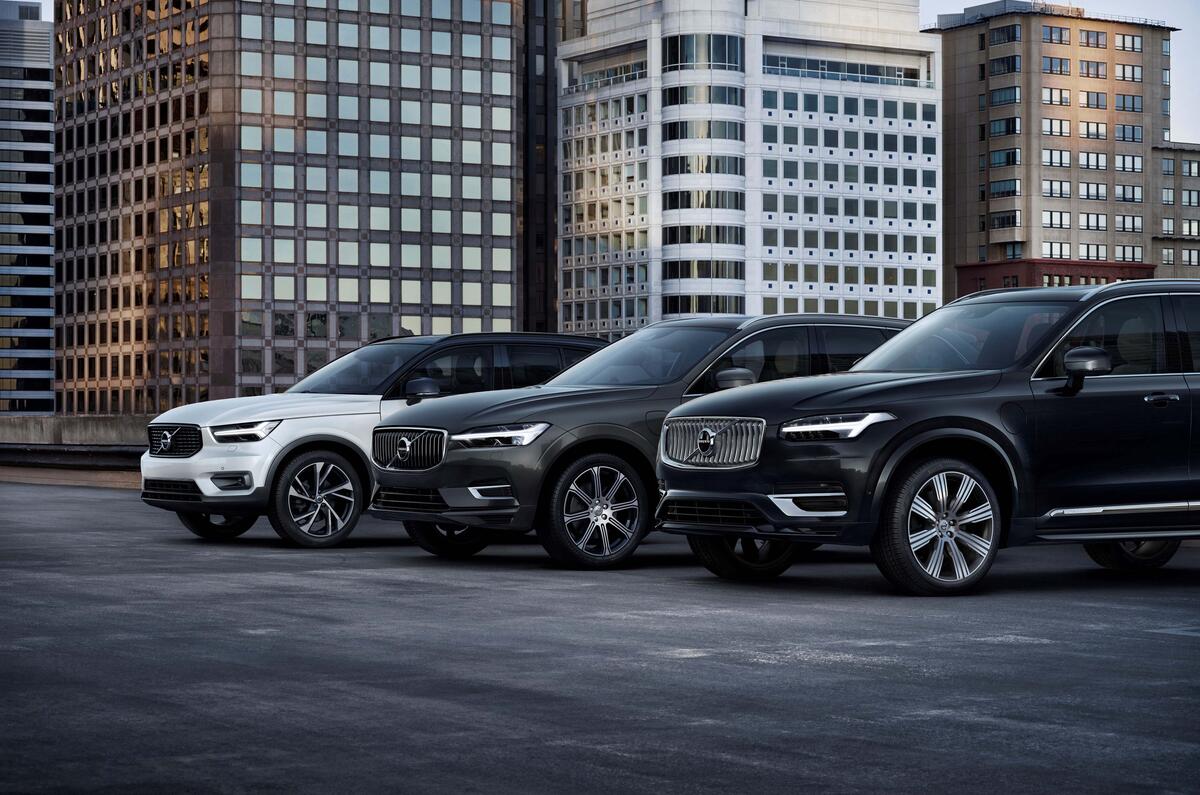Volvo sold a record number of cars last year, with the firm’s sales exceeding 700,000 for the first time – and company bosses say surging demand for plug-in hybrid models mean it is on course to avoid having to pay any European Union CO2 emission penalties in 2020.
The company sold 705,452 cars last year, up from 642,253 in 2018 and the sixth consecutive year in which the Swedish company has hit a new sales high. Of those sales, European sales rose 7.2% to 341,200, while sales in China were up 18.7% to 154,961. In the UK, Volvo achieved its highest sales mark since 1990, with 56,316 cars sold.
Those sales resulted in £22 billion of revenue, up 8.5% on 2018, with operating profit rising 0.8% to £1.14 billion.
As with other car firms, Volvo has been working intensively to electrify its range, and with the imminent release of the XC40 Recharge Plug-In Hybrid T5 will offer a PHEV version of every model. It sold a total of 45,933 plug-in hybrids – led by the V60 and S60 – during the year, up 22.9% compared to 2018. Plug-in hybrids accounted for 18% of Volvo models sold in Europe in December.
Notably, 15,594 of the firm’s plug-in hybrid sales came during during the final three months of the year, led by high demand in European markets for the XC60 and XC90. The company has also launched the new Recharge brand, which will include all its plug-in and full electric models.
Volvo says it has secured extra battery capacity from partners CTAL and LG Chem to increase production of plug-in hybrid models and that, combined with the arrival later this year of the XC40 Recharge Pure Electric T8, will help it avoid fines by reaching the European Union’s CO2 fleet average targets.
Carla De Geyseleer, Volvo’s financial boss, said the firm’s plug-in hybrid sales growth meant the firm was confident that “we will meet our emissions targets in Europe by 2020”. Volvo expects PHEVs to account for 20% of total sales this year, and De Geyseleer added: “We are not planning to pay any penalties whatsoever.”
The electric XC40 will be the first of five full EVs that Volvo will launch by 2025, with Volvo boss Håkan Samuelsson saying the firm has secured battery capacity from CTAL and LG Chem “to ensure that half of our production cars can be fully electric by 2025”.
By 2025, Volvo is aiming to reduce its total carbon footprint by 40%, including a 50% reduction in the CO2 emitted by a vehicle during its lifespan, and 25% reductions in CO2 output from Volvo’s production and operations.









Join the debate
Add your comment
Plug ins
Like another poster on a different thread I'd like to see these tax abominations controlled. A certain percentage of the driving should be mandatory on electric mode. I know four people who have one, and three very rarely use the electric only drive, but in fairness one does use it almost all the time for his commute. Shouldn't be for congestion charge or tax dodging, and the car itself should shut down or go into limp home mode if the plug in bit isn't used frequently.
Big, heavy, unaerodynamic vehicles
I like volvo but they seem to have become a "sanctimoniuos light truck company" that thinks it can make fuel efficient vehicles by clunging all sorts of nonsense together when the fudamentals of what they make are not green or even sensible however the public seem convinced so that's really what matters.
XC60
When you see stats like this you begin to realise just how good the XC60 really is, a sleeping great? As for Volvo PHEVs going from 7% to 20% of total sales well that's a pretty big ask, it's also totally dependant on taxation. As bigger claim as no one will die in Vovlo in 2020 are they still pedalling that?